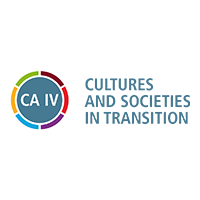Research and Partners
The ideas of the Competence Area IV are central in many collaborative research projects within the University of Cologne:
Global South Studies Center (GSSC)
The Global South Studies Center (GSSC) investigates the causes and consequences of the rapid social, economic, cultural, and political changes that are shaping the Global South. It was founded in 2014 as one of five Centers of Excellence at the University of Cologne. It maintains a broad international cooperation network and serves as an incubator for innovative research collaborations. The GSSC brings together scholars and scientists from the Faculty of Arts and Humanities, the Faculty of Management, Economics and Social Sciences, and the Faculty of Mathematics and Natural Sciences.
CRC/ TRR 228: Future Rural Africa: Future-making and social-ecological transformation
„Future Rural Africa“ is an interdisciplinary collaborative research center funded by the German Research Council (DFG) involving geographers, anthropologists, political scientists, agroeconomists, soil scientists and ecologists from the Universities of Bonn and Cologne as well as external partners to address large-scale land use change and related social-ecological transformations along growth corridors in Eastern and Southern Africa.
CRC 806: Our Way to Europe
Our Way To Europe concerns the history of mankind. It specifically intend to approach this with a combination of geoscientific and archaeological methods. Population dynamics and dispersal processes contributed essentially to the transmission of ideas, techniques, cultural behaviour and the formation of human societies.
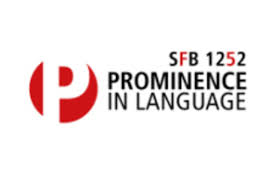
CRC 1252 : "Prominence in Language"
In the Collaborative Research Centre "Prominence in Language" (CRC 1252) more than seventy researchers from the University of Cologne are working together in an interdisciplinary team with the goal of providing a comprehensive characterization of prominence in language. It investigates how prominence structures language with respect to prosody, morphosyntax and semantics as well as text and discourse structure in a large variety of languages from more than a dozen major language families and linguistic areas world wide. The research on prominence contributes to a better understanding of language as a system between communication and cognition.
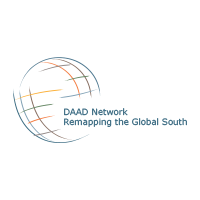
DAAD Network: Remapping the Global South: Teaching – Researching – Exchanging
The DAAD funded Thematic Network "Remapping the Global South: Teaching, Researching, Exchanging" intends to strengthen the ties with its international partners and to cement the link between research on transitions in the Global South as well as teaching within an international network.
http://remapping-the-global-south.uni-koeln.de/
The a.r.t.e.s. Graduate School serves the entire Faculty of Arts and Humanities and covers all qualification levels of academic training in the arts and humanities – from Master to postdoc. The unique scope of subjects offered by the UoC’s Faculty of Arts and Humanities – one of the largest of its kind in Europe – creates ideal conditions for intense, lively and open-minded exchange. As one of five Excellence Initiative projects funded at the University of Cologne since 2012, a.r.t.e.s. creates a productive environment fostering top-level research. It focuses on the complexity of cultural contexts involving language, history, culture, mediality, anthropology and ethics.
www.artes.phil-fak.uni-koeln.de

Morphomata as Käte Hamburger Center
The “Morphomata International Center for Advanced Studies – Genesis, Dynamics and Mediality of Cultural Figurations” is one of the international Käte Hamburger Centers sponsored by the Federal Ministry of Education and Research under the auspices of the initiative “Freedom for Research in the Humanities” (project number 01UK1505). Up to ten fellows from different countries and specialties cooperate with researchers from Cologne in the analysis of cultural change. This dialogue with international academics allows the Center to function as a new locus of research in the Humanities – a think tank where interdisciplinary and intercultural perspectives can be brought to the fore. The Center’s fellows further enrich university life through lectures open to the public, as well as their participation in conferences and publications.
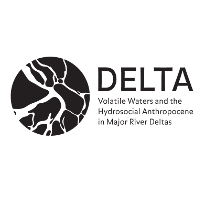
DELTA - Volatile waters and the hydrosocial Anthropocene in major river deltas
How do global crises – in water, economies and climate – manifest in people’s everyday lives? How do delta inhabitants negotiate the ongoing and accelerating volatility of water? And what are the similarities and differences in the predicaments of different major deltas around the world? Based on ethnographic field research, the Volatile Waters project will develop an empirically rich account of the lives of current inhabitants of four socioeconomically and geographically different river deltas.
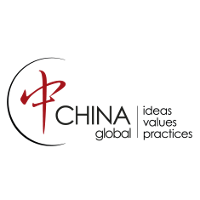
CHINA global
The Excellence Forum CHINA global was established at the University of Cologne in 2017 as part of the German Excellence Initiative, involving the Universities of Cologne, Fudan and Xiamen. The interdisciplinary research team of the Excellence Forum believes that a Chinese-centered globalization will bring a different normative perspective to the world, one that has historical and philosophical roots in a Chinese world view of center and margins, in Chinese notions of justice, fair exchange and moral values, and in particular Chinese experiences of modernity and models of development from the 19th century onwards.
Mecila: Merian Centre "Conviviality in Unequal Societies: Perspectives from Latin America"
The Centre will study past and present forms of social, political, religious and cultural conviviality, above all in Latin America and the Caribbean while also considering comparisons and interdependencies between this region and other parts of the world. Conviviality, for the purpose of the Centre, is an analytical concept to circumscribe ways of living together in concrete contexts.
Cologne Latin American Center (CLAC)
The Cologne Latin American Center (CLAC) is an interdisciplinary institution of the University of Cologne. The Center acts as a network for the institutes at the Faculty of Philosophy, Economics and Social Sciences that are engaged in teaching and research on Hispanic America and Brazil. It coordinates the cross-faculty programmes BA Regional Studies Latin America, MA Regional Studies Latin America and Diplom Regionalwissenschaften Latin America and supervises various exchange programmes for students and lecturers with Latin America and Spain.
http://lateinamerika.phil-fak.uni-koeln.de/home00.html
Reading Global. Constructions of World Literature and Latin America
The debate on world literature is among the most significant cultural historical controversies of our time. This contribution to the debate aims to pursue two goals in particular: A groundbreaking theoretical approach to the current shift in focus of the concept of World Literature that will involve both the displacement of Eurocentric forms of knowledge and a comprehensive review of selection processes in a globalized publishing world. And an innovative investigation of the production and selection of literature that eschews an established canon as a point of departure. This approach is based, among other things, on newly available archival materials from publishing houses active on the international market, which will provide information on mechanisms of exclusion in the global book market.
http://readingglobal.phil-fak.uni-koeln.de/
Cologne African Studies Center (CASC)
The Cologne African Studies Center (CASC) is an interdisciplinary network of Africa researchers at the University of Cologne. CASC is member of AEGIS (Africa-Europe Group for Interdisciplinary Studies) and will be hosting the ECAS conference (European Conference on African Studies) in 2021.
http://casc.phil-fak.uni-koeln.de/
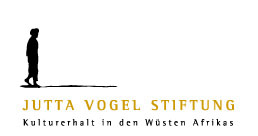
Jutta Vogel Stiftung (Foundation)
The preservation of cultures in African deserts is the most important objective of the Jutta Vogel Stiftung (Foundation) founded by Jutta Vogel. The foundation seeks to raise awareness of the cultural heritage in Africa’s desert areas, to support the encounter between cultures, to improve knowledge of the people and their ways of life, and to protect and preserve their rich heritage. The purpose of the foundation is to protect cultures and landscapes, to support research projects on the history of cultures and landscapes, to improve preservation and expert conservation of monuments and prehistoric sites, scholarly documentation and publications in the deserts of Africa.
The Heinrich-Barth-Institute
At the University of Cologne, a research focus on Africa expanded over the last decades. Since the 1960’s, Africa is one of the larger research foci at the University of Cologne starting with different DFG- funded archaeological projects in southwest Africa. Emerging from these various research activities resulted the establishment of the “Forschungsstelle Afrika” in 1984 at the institute of Pre- and Early History and the Heinrich-Barth Institute in 1989. The institute introduced an association of researchers to Cologne that made African archaeology independent of individual projects and intensified relations with African partners. The Heinrich-Barth-Institute became also very well known in its field for its extensive publishing range of publications.
